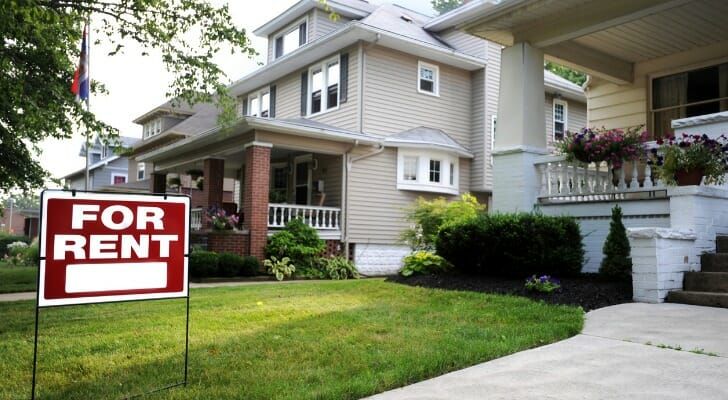
How Can Landlords Maximize Their Rental Income?
Maximizing rental income is a top priority for landlords looking to boost the profitability of their investment properties. Whether you own a single-family home, a multi-unit complex, or a commercial space, there are numerous strategies you can implement to enhance your rental income. Achieving this goal requires a combination of proactive property management, tenant retention, market analysis, and creative revenue generation.
This guide will explain effective methods for maximizing rental income, helping you maintain a competitive edge in the market while keeping your tenants satisfied.
Enhance Property Appeal Through Strategic Upgrades
One of the most effective ways to command higher rents is by improving the overall appeal of your property.
Modernize Interiors
Potential tenants are often willing to pay more for properties with updated amenities and modern designs. Focus on high-impact areas such as:
- Kitchens: Upgrade appliances, countertops, and cabinetry to give the kitchen a contemporary look.
- Bathrooms: Install new fixtures, add stylish tiles, and ensure good lighting.
- Floors and Walls: Replace old carpets with hardwood or laminate flooring and apply a fresh coat of neutral paint.
Boost Curb Appeal
First impressions matter. The exterior of your property is the first thing prospective tenants will see. Simple upgrades like landscaping, fresh paint, and new lighting can make your property more inviting.
Add Desirable Amenities
Including features such as in-unit laundry, high-speed internet, or a pet-friendly environment can attract tenants willing to pay premium rates.
Implement Dynamic Pricing Strategies
Dynamic pricing adjusts rental rates based on market demand, helping landlords optimize income.
Conduct Market Research
Analyze local rental trends to understand what similar properties are charging. This helps you position your property competitively while maximizing rental income.
Seasonal Adjustments
In certain areas, demand for rental properties fluctuates based on the season. For example, units near universities may command higher rents during the academic year. Adjust your pricing to take advantage of these trends.
Offer Flexible Lease Terms
Consider offering different lease options, such as month-to-month or furnished rentals, which can justify higher rents. Short-term leases often come at a premium.
Focus on Tenant Retention
Retaining tenants is more cost-effective than finding new ones. High tenant turnover leads to lost income and additional costs such as advertising, cleaning, and renovations.
Prioritize Communication and Responsiveness
Building strong relationships with tenants through clear communication and prompt responses to concerns fosters trust and satisfaction. Happy tenants are more likely to renew their leases.
Offer Incentives for Lease Renewals
Provide perks such as minor rent discounts, property upgrades, or gift cards to encourage tenants to stay. Even small gestures can make tenants feel valued and appreciated.
Maintain a Sense of Community
If your property has multiple units, organize events or create communal spaces where tenants can interact. A strong sense of community can improve tenant retention rates.
Optimize Operational Efficiency
Streamlining property management tasks can reduce costs and improve overall profitability.
Regular Maintenance and Repairs
Preventative maintenance helps avoid costly repairs in the future. Schedule regular inspections to address minor issues before they escalate.
Energy Efficiency Upgrades
Investing in energy-efficient appliances, LED lighting, and proper insulation not only reduces utility costs but also makes your property more attractive to environmentally conscious tenants.
Hire Professional Management
If managing the property yourself becomes overwhelming, consider hiring a property management company. They can handle everything from tenant screening to maintenance requests, ensuring a smooth operation.
Explore Additional Revenue Streams
Diversifying your income sources can significantly boost rental profitability.
Offer Premium Services
Add-ons like cleaning services, laundry facilities, or high-speed internet packages can generate extra income.
Monetize Extra Spaces
Unused spaces like basements, storage rooms, or parking areas can be rented out separately. In high-demand urban areas, renting parking spaces alone can provide a substantial income boost.
Partner with Local Businesses
Collaborate with local businesses to offer exclusive deals or services to your tenants. For instance, a local gym might provide discounted memberships in exchange for advertising space in your building.
Stay Compliant with Legal and Financial Regulations
Adhering to legal requirements protects your investment and helps avoid costly penalties.
Understand Local Rental Laws
Rental laws vary by location, so it’s essential to familiarize yourself with local regulations. These may cover issues like rent control, tenant rights, and eviction procedures.
Maintain Clear Documentation
Keep detailed records of lease agreements, payment histories, and correspondence with tenants. Proper documentation can protect you in case of disputes.
Ensure Adequate Insurance Coverage
Landlords insurance can cover property damage, liability claims, and lost rental income due to unforeseen circumstances. Review your policy regularly to ensure comprehensive coverage.
Leverage Technology to Improve Efficiency
Technology offers numerous tools that can simplify property management and enhance tenant experiences.
Online Payment Systems
Allow tenants to pay rent online through secure platforms. This will ensure timely payments and provide a convenient option for tenants.
Automate Maintenance Requests
Use property management software to track and address maintenance requests efficiently. Tenants can report issues online, and you can monitor progress in real time.
Virtual Tours and Digital Marketing
Offer virtual property tours and maintain an active online presence to attract more prospective tenants. Well-executed digital marketing can expand your reach and fill vacancies faster.
Conclusion
Maximizing rental income requires a balanced approach that prioritizes profitability and tenant satisfaction. From property upgrades and dynamic pricing to tenant retention and additional revenue streams, landlords can employ numerous strategies to enhance their rental income.
By staying informed about market trends, leveraging technology, and maintaining open communication with tenants, landlords can create a thriving rental business that generates consistent income and long-term growth. Continuously evaluating and adapting your strategies will ensure you remain competitive in the ever-changing rental market.




